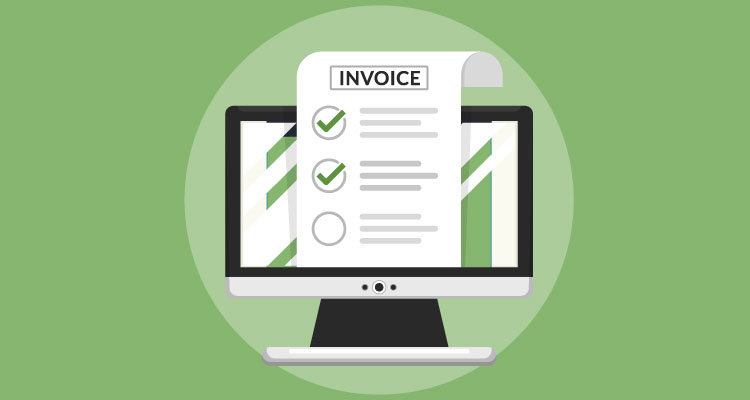Procedures for suspension of use of e-invoices in Vietnam
What are the invoice types under Decree 123 in Vietnam? - Kieu Linh (HCMC, Vietnam)

Procedures for suspension of use of e-invoices in Vietnam (Internet image)
1. Invoice types under Decree 123 in Vietnam
In Article 8 of Decree 123/2020/ND-CP, the invoice types are as follows:
Invoices prescribed herein are classified into the following types:
Value-added tax (VAT) invoice is an invoice which may be used by organizations making VAT declaration by employing the credit-invoice method for the following activities:
- Domestic sale of goods or provision of services;
- Provision of international transport services;
- Export of goods to free trade zones and other cases considered as export of goods;
- Export of goods or provision of services in a foreign market.
Sales invoice is an invoice which may be used by the following organizations and individuals:
- Organizations or individuals that declare and calculate VAT by employing direct method for the following activities:
+ Domestic sale of goods or provision of services;
+ Provision of international transport services;
+ Export of goods to free trade zones and other cases considered as export of goods;
+ Export of goods or provision of services in a foreign market.
- Organizations or individuals in free trade zones that sell goods or provide services to the domestic market, sell goods or provide services to other organizations/individuals in free trade zones, or sell goods or provide services to a foreign market.
In such cases, invoices must bear the phrase “Dành cho tổ chức, cá nhân trong khu phi thuế quan” ("For organizations/individuals in free trade zones”).
Public property electronic sales invoice is used when selling the following types of property:
- Public property at authorities, organizations or units (including state owned houses);
- Infrastructure property;
- Public property that is managed by enterprises as assigned by the Government, excluding state capital invested in enterprises;
- Property of state-funded projects;
- Property under the established all-people ownership;
- Public property appropriated under decisions issued by competent regulatory authorities or officials;
- Raw materials and supplies obtained from the disposal of public property.
Electronic sales invoice on national reserve goods is used when a state reserves agency or unit sells national reserve goods in accordance with regulations and laws.
Other invoices, including:
- Stamps, tickets and cards in the form and containing contents prescribed herein;
- Air freight receipts; receipts of international transport charges; receipts of banking service charges, except the cases prescribed in Point a of this Clause where a record whose format and contents are made according to international practices and regulations of relevant laws.
Records printed, issued, used and managed in the same manner as invoices, including delivery and internal transfer note, and delivery notes for goods sent to sales agents.
The Ministry of Finance shall provide specific guidance on templates of invoices used by the entities prescribed in Article 2 hereof for reference purposes.
2. Cases of suspension of use of e-invoices in Vietnam
Clause 1, Article 16 of Decree 123/2020/ND-CP stipulates the cases of suspension of use of e-invoices as follows:
- Enterprises, business entities, other organizations, household or individual businesses shall suspend their use of authenticated and unauthenticated e-invoices in the following cases:
+ An enterprise, business entity, other organization, household business or individual business has its TIN invalidated;
+ An enterprise, business entity, other organization, household business or individual business does not operate at the registered location as verified and announced by the tax authority;
+ An enterprise, business entity, other organization, household business or individual business has sent a notification of business suspension to a competent authority;
+ An enterprise, business entity, other organization, household business or individual business is banned from using e-invoices by the tax authority for the purpose of enforcement of payment of tax debts;
+ E-invoices are used to sell smuggled goods, banned goods, counterfeits, goods violating intellectual property rights as detected and informed by competent authorities;
+ E-invoices are used for short selling of goods or services for fraudulent purposes as detected and informed by competent authorities;
+ A business registration authority or competent authority requests an enterprise to suspend operation in a conditional business line after finding that this enterprise does not fully satisfy the business conditions prescribed by law.
If the tax authority, through inspection, discovers that the enterprise is established for the purpose of trade and use of illegal e-invoices or illegal use of e-invoices for tax evasion purposes, the enterprise shall face administrative penalties and be suspended from use of e-invoices according to the decision issued by the tax authority.
3. Procedures for suspension of use of e-invoices in Vietnam
Clause 2, Article 16 of Decree 123/2020/ND-CP stipulates the procedures for suspension of use of e-invoices as follows:
Step 1: The supervisory tax authority shall send a notification requesting the taxpayer in Point dd, e or g Clause 1 of Article 16 of Decree 123/2020/ND-CP to provide explanation or additional documents about its use of e-invoices.
Step 2: The taxpayer must provide such explanation or additional documents within 02 working days from receipt of the notification from the tax authority. Such explanation or additional documents may be provided directly or in writing for the tax authority.
Step 3: The taxpayer shall continue using e-invoices or provide explanation. To be specific:
- If the taxpayer provides adequate and convincing explanation or additional documents as prescribed, it shall continue using e-invoices.
- If the explanation or additional documents provided by the taxpayer is/are not convincing, the tax authority shall continue requesting the taxpayer to provide additional documents. Additional documents must be submitted within 02 working days from receipt of the tax authority’s request.
If the taxpayer fails to provide explanation or additional documents within the requested period, the tax authority shall request the taxpayer to suspend its use of authenticated e-invoices or unauthenticated e-invoices, and take further actions as prescribed.
Note: Enterprises, business entities, other organizations, household or individual businesses mentioned in Clause 1 of Article 16 of Decree 123/2020/ND-CP are allowed to continue using e-invoices after informing tax authorities of business resumption, having their TIN reactivated by tax authorities, or obtaining decisions on cancellation of suspension of e-invoices from tax authorities, or upon notification by competent authorities.
- During the business suspension period, if enterprises, business entities, other organizations, household or individual businesses whose business is suspended need to issue e-invoices to buyers to execute contracts which have already been signed before the date of business suspension, they shall use e-invoices which are separately provided according to the provisions in Clause 2 Article 13 of Decree 123/2020/ND-CP.
Vo Ngoc Nhi
- Key word:
- use of e-invoices in Vietnam
- Cases of land rent exemption and reduction under the latest regulations in Vietnam
- Economic infrastructure and social infrastructure system in Thu Duc City, Ho Chi Minh City
- Regulations on ordination with foreign elements in religious organizations in Vietnam
- Increase land compensation prices in Vietnam from January 1, 2026
- Determination of land compensation levels for damage during land requisition process in Vietnam
- Who is permitted to purchase social housing according to latest regulations in Vietnam?
-

- 07 cases of suspension of use of e-invoices in ...
- 10:40, 26/10/2022
-

- Procedures for suspension of use of e-invoices ...
- 15:34, 21/07/2022
-

- Notable new policies of Vietnam effective as of ...
- 16:26, 11/04/2025
-
.Medium.png)
- Notable documents of Vietnam in the previous week ...
- 16:21, 11/04/2025
-
.Medium.png)
- Notable documents of Vietnam in the previous week ...
- 16:11, 02/04/2025
-
.Medium.png)
- Notable new policies of Vietnam to be effective ...
- 16:04, 02/04/2025
-
.Medium.png)
- Notable new policies of Vietnam effective from ...
- 14:51, 21/03/2025
 Article table of contents
Article table of contents
